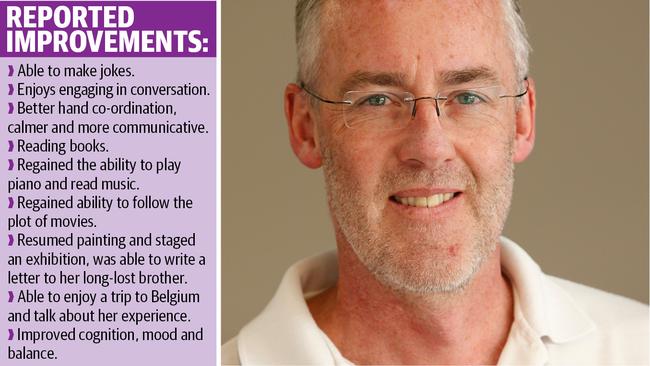Alzheimer’s breakthrough: Melbourne patients first in world to access drug
MELBOURNE patients will be the first in the world to access a breakthrough Alzheimer’s drug shown to wake people up from the devastating impacts of dementia.
VIC News
Don't miss out on the headlines from VIC News. Followed categories will be added to My News.
MELBOURNE patients will be the first in the world to access a breakthrough Alzheimer’s drug shown to wake people up from the devastating impacts of dementia.
Up to 300 Australians will be offered the chance to trial experimental drug Anavex 2-73 next year in a study hoped to be the biggest step since the 1990s in treating the disease.
The Phase II-III trial comes as results from an early stage trial revealed Anavex not only halted the progression of dementia, but even reversed its impact and restored functions.
A group of 32 patients from Melbourne’s Caulfield, Austin, Royal Melbourne and St Vincent’s hospitals involved in the early stage trial reportedly regained their ability to make jokes, engage in conversation, read books, play the piano, follow a movie, paint, play golf, travel and recall lost memories.
While the results announced in the US will have to be verified in the much larger upcoming trial for the drug to offer any hope of becoming a potential treatment, Monash University’s Associate Professor Steve Macfarlane is stunned by the early results.

“For a trial at this stage it is unprecedented — I’ve never seen responses like this in any early stage trial,” Assoc Prof Macfarlane said. “This means they are significantly less impaired than they were 12 months ago.
“The ultimate determination of how significant these results are is if they can be borne out in a much larger trial, which is planned for next year.”
Under current treatments, moderate-range Alzheimer’s patients typically drop about two points a year on the 30-point cognitive test used to measure dementia. However, those on the Anavex trial actually rose an average of 1.8 points on the cognitive test scale, with some “super responders” regaining much greater abilities and functions.
Because the drug targets homeostasis regulation to help a person’s immune system fight neurological conditions, Anavex Life Sciences chief executive officer Christopher Missling is hopeful it may also prove beneficial for other neurological disorders, including Parkinson’s disease and multiple sclerosis.
There was also encouraging news for biotech company Biogen in its development of dementia drug Aducanumab this month, with early stage results indicating it had reduced the build-up of amyloid plaque in Alzheimer’s patients’ brains.


